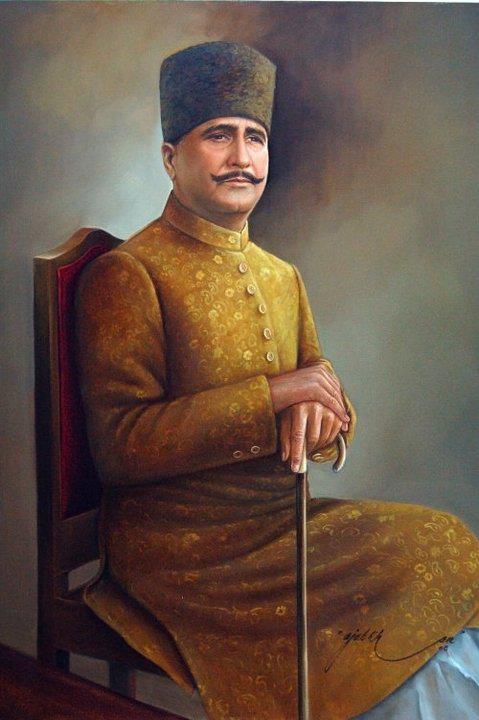
Allama Iqbal is a Founder of the Khudi (I am ness) concept, spiritual father of Pakistan. His vision of Islam and freedom was so unique yet dynamic. On His birthday we want to pay homage to his ideology that helps Muslims of subcontinent to fight for their right.
Allama Muhammad Iqbal born in 9th November 1877 in Sialkot. He was a special kid by birth. His father Noor Muhammad was a tailor by profession. He was not a rich person but a devoted Muslim by heart. His mother Imam Bibi was a housewife and a very pious lady. Little Iqbal got his religious instincts from his parents that lead him to more Devine paths of spirituality. He was a bright student but his father could not afford his education. So his uncle Atta Muhammad bear all the expenses of his education.
After completing basic education he went abroad for higher education. After Becoming a Barrister in 1907 from London. He moved to Germany for doctorate in Philosophy from Ludwig Maximillian University of Munich. In 1908 he completed his PhD. He influenced them much, they dedicated a street after his name. they even put a plaque in front of house where he spent his years in Germany.
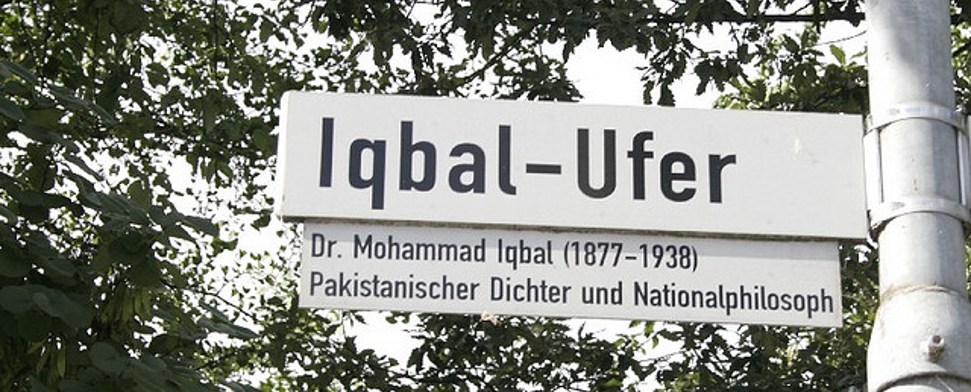
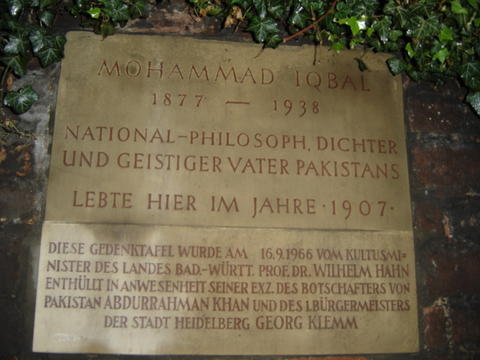
1877 – 1938
National Philosopher, Poet
and Spiritual Father of Pakistan
lived here in the year 1907
Poetry and His concept of Oneself
He started poetry at very young age. His preferable language was Persian. Out of 12000 verses, 7000 are in Persian language. His first book “Asrar e Khudi” (secret of self) was in Persian. In this book he defines the concept of Khudi. According to him if a person identifies his Khudi in himself and embraces it. One cannot be slaved. He can achieve anything in the world. It is a unique path to find Allah and His Divinity. He told his ideology of Allah and Islam in his book. This book and concept blow a new spirit in Muslims. They are ready to fight the difficult battle of freedom. If one can say Allama Iqbal is the person who lead Muslims and motivates them just by his poetry, It could not be wrong.

After World war I, he was so sad upon the circumstances. His books Bang e Dara (Call of the Marching bell) and Khizr e Rah (the Guide) are his way of expressing his feelings and thought. He does not seem a very religious man but after reading his books and ideology. He was the most religious with deep rooted Sufi person.
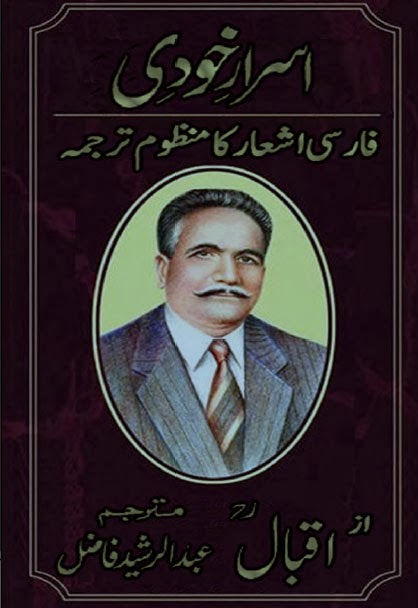
Personal Life Of Iqbal
He got married thrice. His first marriage was arranged by his family at the age of 18 to Karim Bibi, daughter of a Gujrati physician. While the couple had two children Miraj Begum and Aftab Iqbal, they parted ways. His second marriage was with Mukhtar Begum in the year 1914 who died during childbirth in 1924. Later, Iqbal married Sardar Begum with whom he has a son and a daughter, Javed and Muneera respectively.
Javed Muhammad Iqbal later became Senior Justice of Supreme Court of Pakistan. He even allowed government to change his ancestral house in museum. Javed Manzil in Sialkot now became a museum where you can get a glimpse about Iqbal’s life. He published Iqbal’s letter and incomplete transcripts in 1961. By these one can easily learn His unique take on life.
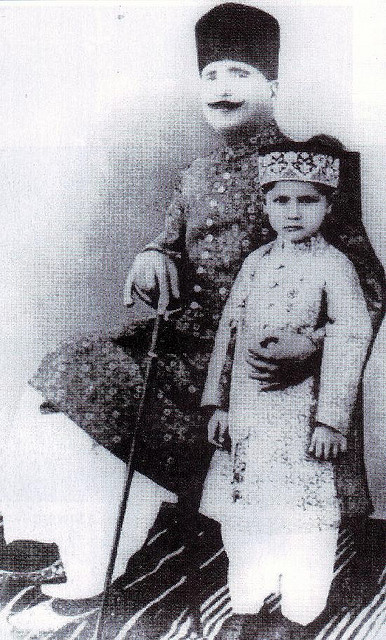
Also Read: Minar e Pakistan Lahore: A tale of Muslim’s struggle
Titles and Accopmlishments of Allama Iqbal
King George granted him the title of Sir in 1922. He was very popular in West. His verses still appreciated by many renown poets and philosophers. He also known as Mufakkar e Islam (Thinker of Islam) and Shayar e Mashriq (Poet of the East) by literary society of subcontinent. Given The “Khan Bahadurddin F.S. Jalaluddin” Medal In 1897 For An Outstanding Result In The Arabic Language.
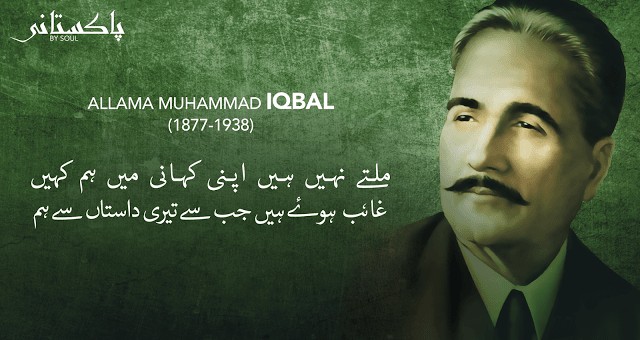
Illness and death
In last years he got ill by some mysterious throat problem. It was a tumor or infection, it could not detected on time. After suffering for months from the illness, Iqbal died in Lahore on the 21 April 1938. His tomb located in Hazuri Bagh, the enclosed garden between the entrance of the Badshahi Mosque and the Lahore Fort. Hundreds of tourists visits the tomb every year, and pays their respect to the revolutionary poet of all time.
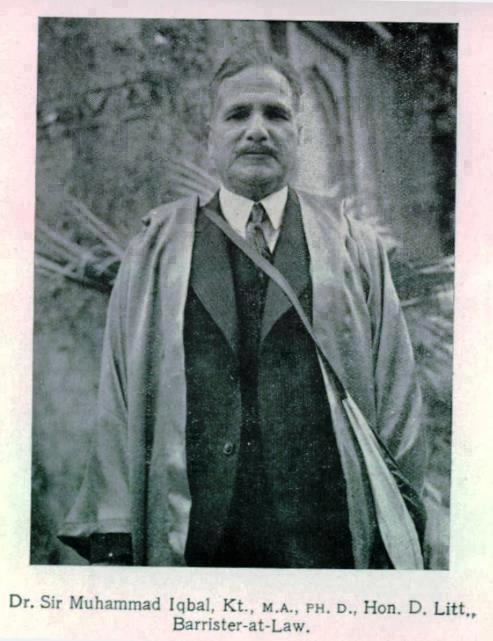

[…] Allama Iqbal: Facts you should know about Shayar e Mashriq […]
[…] Allama Iqbal: Facts you should know about Shayar e Mashriq […]
[…] Also See: Allama Iqbal: Facts you should know about Shayar e Mashriq […]